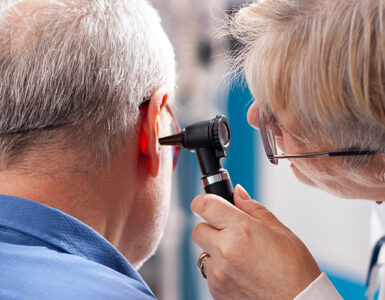Figuring out the confusing and complex nature of Long COVID can be difficult. If you’re dealing with Long COVID symptoms and trying to understand their cause, you are not alone. Millions of people across the U.S. are seeking answers and support, just like you.
What is Long COVID?
Long COVID, also known as Post-COVID or post-acute sequelae of SARS-CoV-2 infection, is a wide range of new, returning, and ongoing health problems experienced after you have been infected with the virus that causes COVID-19.
According to the Centers for Disease Control and Prevention (CDC), most people with COVID-19 are better within a few days to a few weeks after infection. At least four weeks after infection is the start of when Long COVID could first be identified.
Some Long COVID symptoms include:
- Persistent fatigue
- Shortness of breath
- Brain fog and difficulty concentrating
- Joint and muscle pain
- Loss of taste or smell
- Trouble sleeping
- Headaches
- Chest pain
Is Long COVID Contagious?
You can’t catch Long COVID from someone experiencing it.
Self-Care for Long COVID
Managing Long COVID involves a blend of self-care practices that nurture your physical and mental health. Incorporating these strategies into your routine may bring you comfort:
- Get enough rest: Sleep is restorative and helps your body to heal. Aim for at least 7 hours of sleep every night.
- Stay hydrated and eat a balanced diet: Drink a glass of water with every meal and snack of the day, and focus on eating fresh nutrient-rich foods.
- Pace yourself: Listen to your body and pace yourself when needed. Take breaks throughout the day and allow for plenty of rest.
- Move your body: Do gentle exercises as tolerated. Gradually increase your activity as your body allows. Tai Chi, for example, is a gentle exercise that involves slow, flowing movements.
- Prioritize your mental health: Be sure to focus on your mental health with activities that bring joy, relaxation, and connection. Consider healthy behaviors such as mindfulness practices, getting involved in a community program, or spending time outdoors.
When to See a Doctor
If you feel like you have symptoms related to Long COVID, it would be appropriate to reach out to a doctor. Every case is unique and it’s helpful to work with a healthcare professional to tailor a plan for your needs.
For more information on Stony Brook’s Post-COVID Clinic, click here.
To learn more about common symptoms of Long COVID, read this article featuring Dr. Sritha Rajupet, director of the Stony Brook Medicine Post-COVID clinic.












